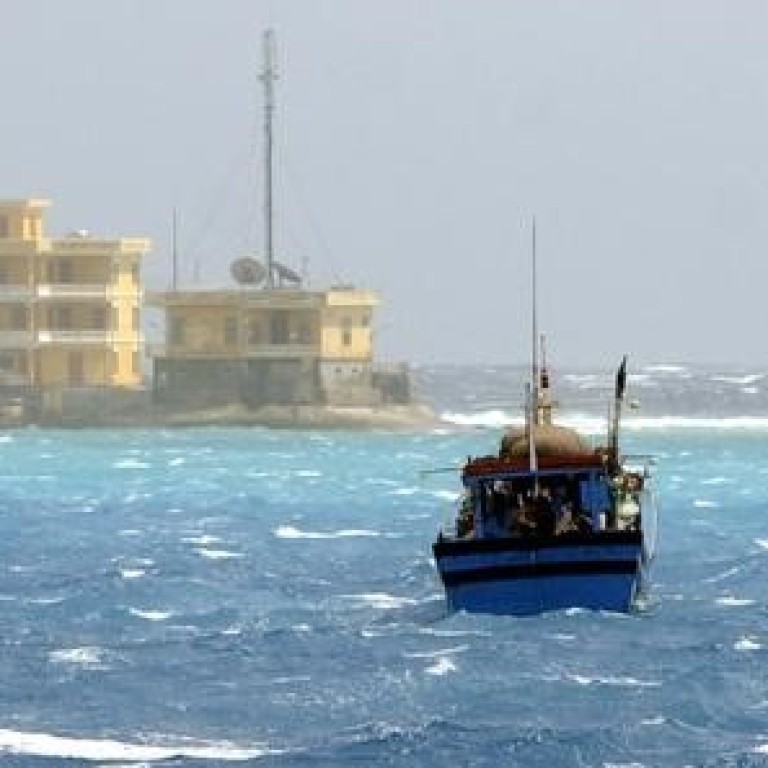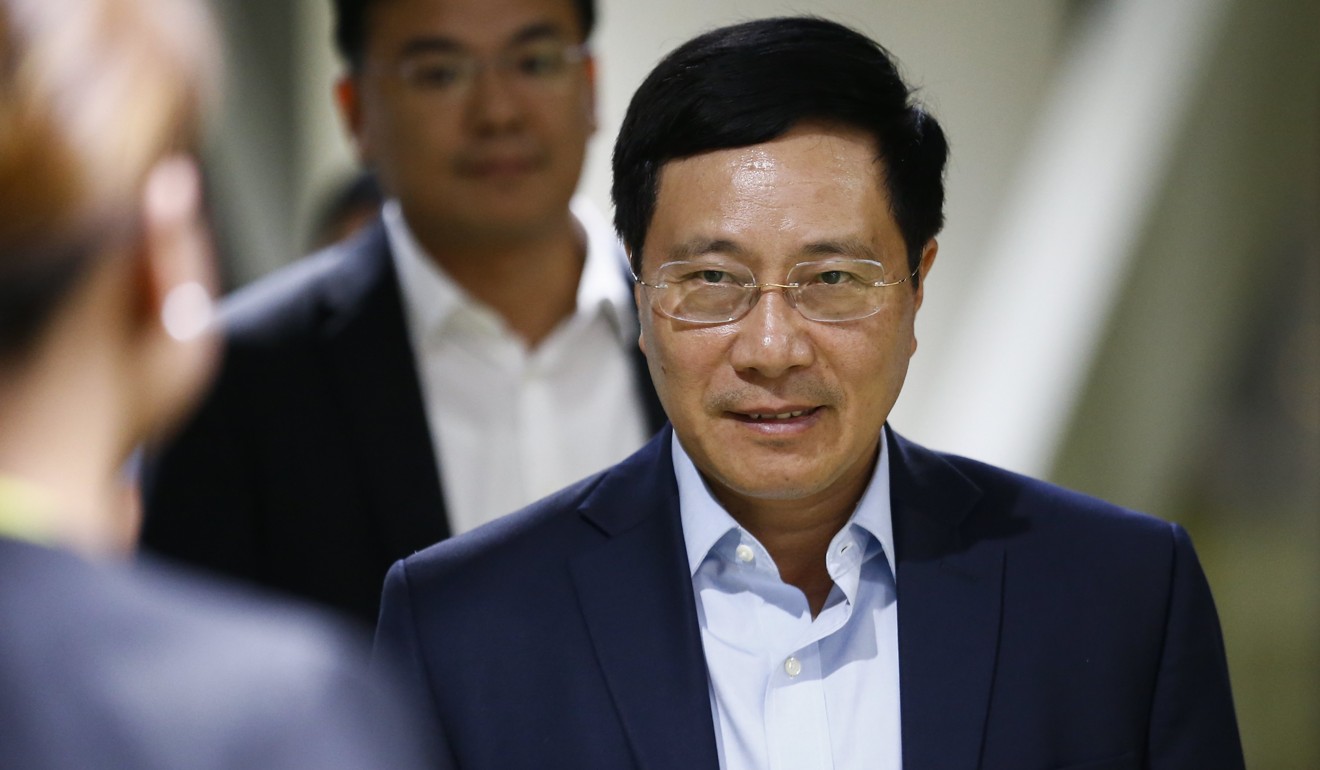
Vietnam frustrated by slow pace of talks on South China Sea code of conduct
- Foreign Minister Pham Bình Minh says Southeast Asian countries are trying to strike a balance between competing US and Chinese interests in disputed waters
- Hanoi and Beijing both claim areas of South China Sea but Vietnam insists it wants to avoid conflict
Vietnam has expressed frustration at the slow pace of negotiations towards agreeing a code of conduct for the South China Sea.
The country’s foreign minister Pham Bình Minh made the comments after China and Vietnam wrapped up their latest talks on their land and maritime borders on Monday with a pledge to maintain maritime stability.
He told local media that Hanoi was trying to maintain a balance between the United States and China at a time of growing rivalry between the two powers.
“Not only Vietnam, but many other countries, would have to consider how to navigate the situation,” Minh told the state-controlled Viet Nam News.
US and Britain conduct first joint drill in South China Sea
Minh also expressed frustration at the slow progress on the code of conduct for the South China Sea, which has yet to materialise despite years of negotiation.
In August China and the Association of Southeast Asian Nations agreed on a single draft negotiating text, and hope to wrap up talks by 2021, but Minh said the process had been “slower than expected”.
He said Vietnam must pursue an independent position and help avoid conflicts in the disputed waters, but described it as the “largest hurdle” to better relations between Hanoi and Beijing.
Vietnam said it respected the right to freedom of navigation, but reasserted its claim to the Paracel and Spratly islands, which mainland China and other parties also claim.
Vietnam walks fine line with Beijing over South China Sea remarks
Following last week’s incident, the Vietnamese and Chinese deputy foreign ministers met on Monday for the latest round of border talks.

The Vietnamese foreign ministry said it had expressed its concerns about some “complicated recent developments in the South China that are not conducive to peace, stability and cooperation in the region”, without elaborating further.
China said both nations had made progress in maintaining stability for their land borders, and both sides would step up cooperation on infrastructure.
Collin Koh, a research fellow at the Maritime Security Programme at the Nanyang Technological University in Singapore, said China and Vietnam were eager to continue cooperation in less sensitive zones.
US warship sails near Paracels in South China Sea amid talks in Beijing
The two sides fought a brief border war in 1979, in which tens of thousands of people are estimated to have died, and sporadic clashes continued for years afterwards.
He said the two sides regarded their resolution of the land border dispute as an “example of how they can manage their problems over sovereignty … but this doesn’t necessarily remove the enduring schism because of historical reasons and what China has done in South China Sea in recent years”.
South China Sea: Vietnam takes hard line but will Beijing listen?
Koh predicted relations between the two sides would follow a similar pattern of “overt and willing expressions of conciliatory overtures” mixed with “business as usual” in other areas.
He said that for China this meant continuing to militarise the South China Sea, while Vietnam would continue to seek a counterbalance by cultivating closer security ties with countries such as India, Japan and the US.

